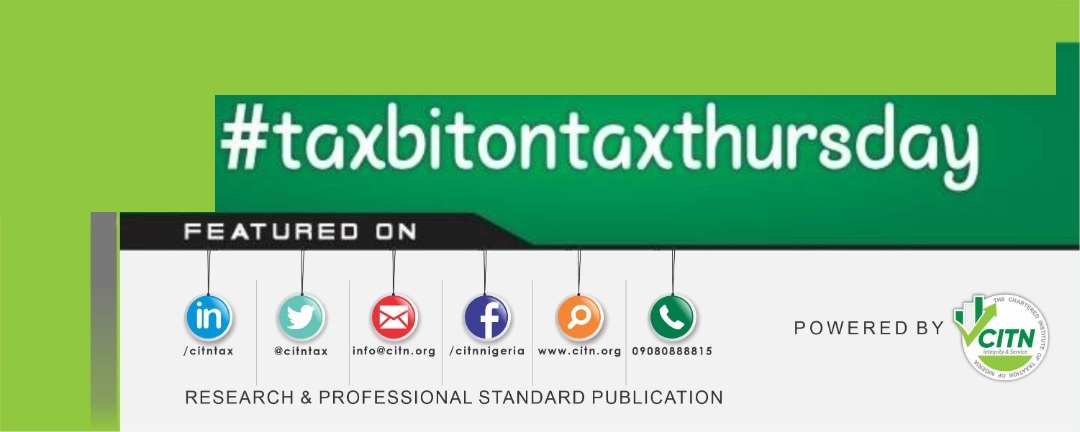- Have any questions?
- 09080888815
- 092918349
- citn@citn.org
Highlights of the Lagos State Value-Added Tax Law

Administration of Stamp Duties in Nigeria Under the Finance Act (Part 2)
September 10, 2021
Administration of Stamp Duties in Nigeria under the Finance Act -Part 3
September 26, 2021The Lagos State House of Assembly on the 9th of September, 2021 passed its Value Added Tax (VAT) Law. The Law is to impose and charge VAT on certain goods and services as well as to make provisions for the administration and collection of the tax. The Law was passed following the judgement of the Federal High Court in Port Harcourt, Rivers State to the effect that the federal government is not empowered by law to charge and collect Value-Added Tax and that this power rests in the states of the federation.
We have highlighted below the crucial provisions of the Law for information and knowledge:
- The rate of VAT under the law is placed at 6 per cent of the value of taxable goods and services.
- The Lagos State Internal Revenue Service (LIRS) is empowered to administer and collect the tax within the state.
- Companies that are resident within Lagos State are to register with LIRS for payment of VAT within 6 months of the enactment of the Law or commencement of business whichever is earlier.
- The Law frowns at refusal to register as a taxable person and failure to register within the time provided will attract upon conviction a penalty of ₦50,000 in the first month and ₦100,000 in subsequent months. After three months, the premises of such person shall be sealed up. It is hoped that the VAT controversy between the Federal Government and states is settled early to prevent companies from paying penalties due to a lack of clarity on the authority to collect the tax.
- Section 16(2) of the Law mandates an importer of goods to pay the tax due on such goods to the LIRS before clearing them. How this would be implemented remains uncertain and we await guidelines on its implementation.
- An objection to assessment to the tax shall first be made to the LIRS and if unsatisfied, an appeal shall be made to the Value Added Tax Appeal Tribunal established by the Law for this purpose. Appeals from the VAT Appeal Tribunal shall be made to the State High Court. The Service may also recover unpaid taxes from businesses by applying to the VAT Appeal Tribunal.
- The distribution of revenue from the tax is 75% to the state government and 25% to the local governments. The percentage allocated to the local governments is relatively low. The state functions majorly through local governments, therefore, more funds should have been allocated to them.
- The Law does not exempt businesses with a turnover below ₦25million as provided for by the federal VAT legislation. This is not encouraging for small and medium enterprises within the state.
- Also, the list of exempt items is not as wide as we currently have it under the federal VAT Act. This may occasion a rise in the cost of goods and services within the state.
There are a lot of grey areas to be addressed including the rules that will govern the supply of VATable goods and services by non-residents, deduction of input VAT from output VAT where VAT rate varies among states and whether or not digital transactions are subject to VAT.
In conclusion, following the trending constitutional agitations by some state governments to administer VAT collection within their respective states to the exclusion of the Federal Government; and following the order of the Court of Appeal in the Federal Inland Revenue Service V Attorney General of Rivers State & Attorney General of the Federation (CA/PA/282/2021) directing that status quo be maintained pending the determination of the appeal, members of the Institute and the general public are advised to continue to file their VAT returns with the Federal Inland Revenue Service (FIRS) till when issues are resolved.


